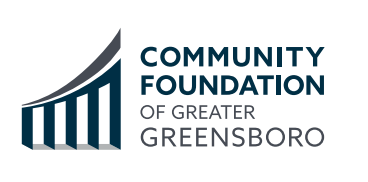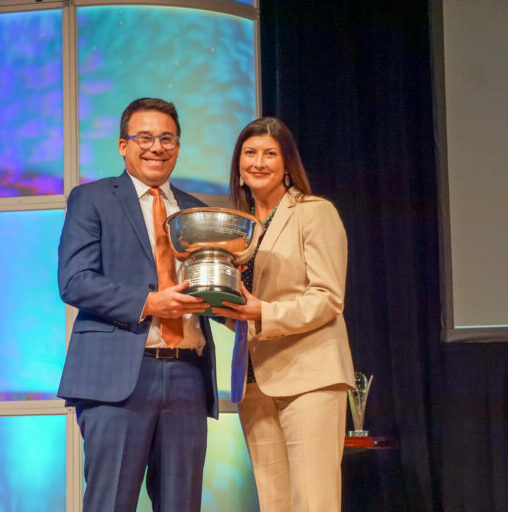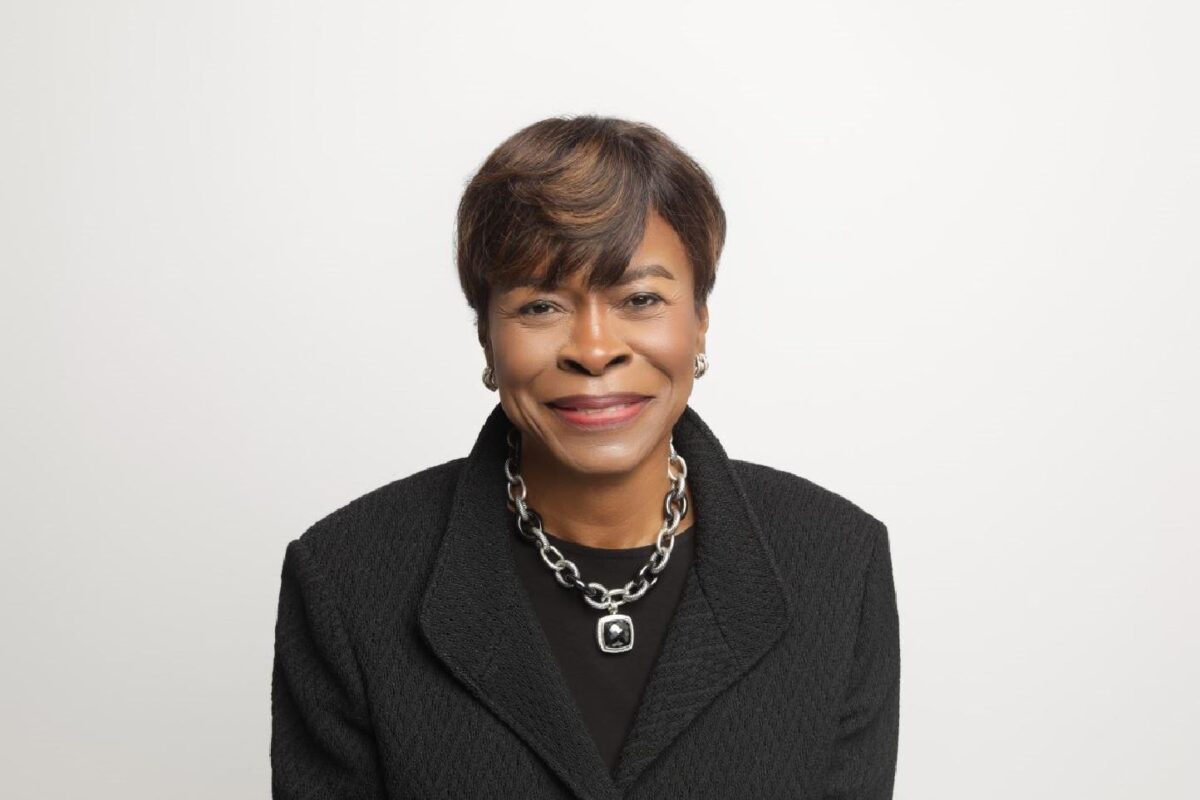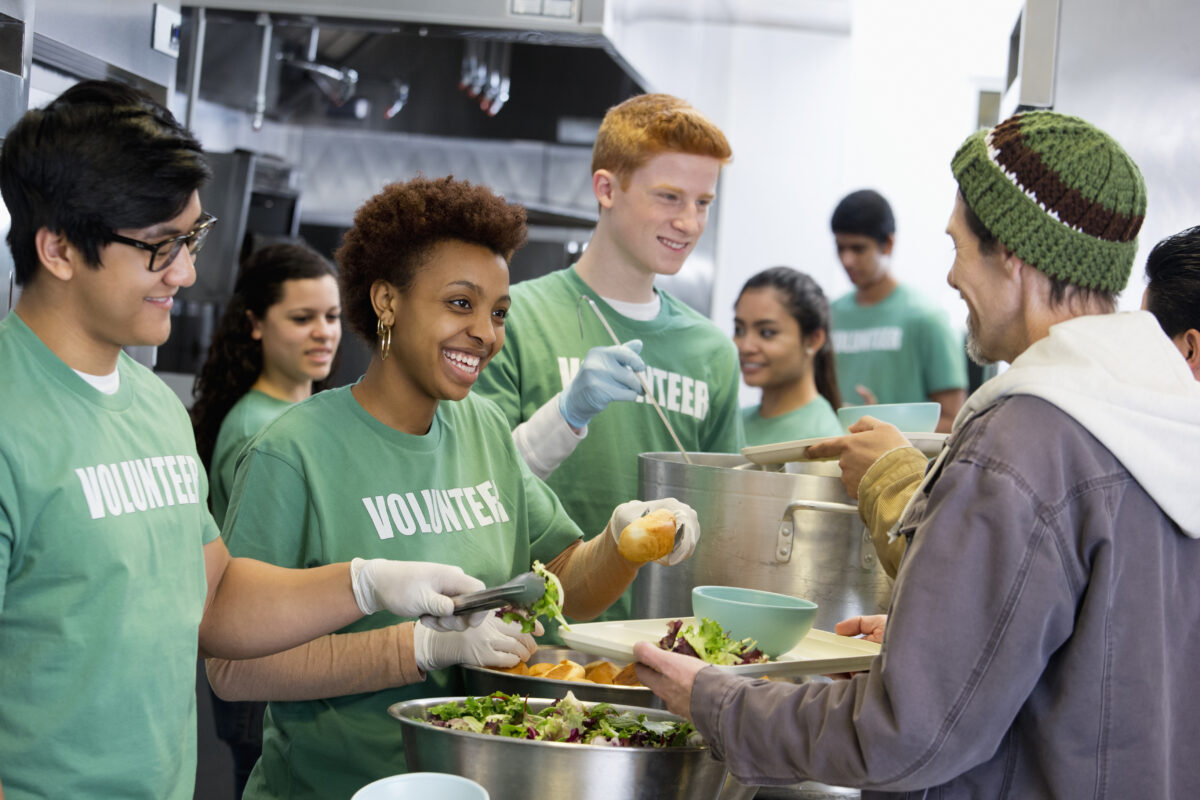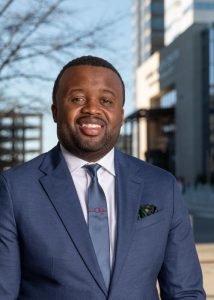North Carolina for Community and Justice (NCCJ) will honor community leaders Mae Douglas and Dr. Patrick Harman with the Brotherhood/Sisterhood Citation Award at their 57th annual Citation Award Dinner on Wednesday, November 8, chaired by Leslie Dunne Ketner and Robert C. Ketner.
“NCCJ is delighted to honor Mae and Patrick,” says Ivan Canada, NCCJ’s executive director. “These two remarkable people are both multi-hyphenate community leaders. Mae and Patrick are volunteers – and mentors – and philanthropists. They make generous investments, but they don’t stop there. They then roll up their sleeves and do the work of creating the change they want to see for our communities. They’re using every resource they can to break down barriers, foster collaboration and partnership, and set our Triad community on the path toward a future that’s good for all of us – not just some of us.”
“Robert and I are proud and excited to chair this important event,” says Leslie Dunne Ketner. “In a polarized world, love is the only hope – and NCCJ is dedicated to bringing people together in understanding, acceptance, and love. We can’t wait to gather with our community this fall to celebrate Mae and Patrick and shine a spotlight on some of the incredible work these leaders are doing to uplift and strengthen our community.”
ABOUT OUR HONOREES
Greensboro native Mae Douglas is a lifelong advocate for racial and social justice. After a distinguished career as a corporate business leader and human resources executive, Mae came home to Greensboro – and got to work. Driven by her belief in the promise Greensboro embodies, calling it “a place of diversity, compassion, vision, and collaboration,” Mae is working to build a better city for future generations growing up in our community.
Since retirement, Mae has invested her time, talents, and resources as a volunteer, mentor, and philanthropist. She is dedicated to advancing the policy and systemic changes necessary to achieve full equity and accessibility in education, health care, business development, and all facets of life for those in our community. Her efforts are often focused in predominantly Black areas like those in East Greensboro where she grew up, since investments in the city’s growth historically left out neighborhoods like hers.
Mae currently serves with organizations such as Cone Health, UNC-Greensboro, and the Community Foundation of Greater Greensboro. She previously served with several others, including NCCJ. Most recently, she played a key role in establishing the Black Investments in Greensboro (BIG) Equity Fund, a permanent endowment with a vision to transform the well-being of Greensboro’s Black communities.
During Mae’s career, she was nationally recognized for her significant contributions to diversity efforts and leadership development across the telecommunications industry. Mae has been honored many times for her work in the Triad, including the 2020 Athena Award by the Greensboro Chamber of Commerce; the 2022 Outstanding Greensboro Philanthropist by the Association of Fundraising Professionals – NC Triad Chapter; and the 2022 Thomas Z. Osborne Distinguished Citizen Award by the Greensboro Chamber of Commerce, and the 2023 Black Business Ink Power 100 Award.
Dr. Patrick Harman works tirelessly to improve the quality of life for all people in his hometown of High Point. For more than 20 years, he has leveraged his Hayden-Harman Foundation to bring about positive, lasting change in our community. Patrick’s impact is both deep and wide; he quietly plays a key role in many aspects of High Point’s civic life and community development.
Much of Patrick’s work has focused on revitalizing the Washington Street area, High Point’s historic Black Main Street, through commercial and residential building renovation, business and economic development, and youth education and leadership initiatives. He founded Growing High Point to address healthy food access through comprehensive and sustainable food systems through the creation of urban farms, a food hub, and a mobile grocery store.
Seeking to grow the capacity of all nonprofits to respond to community trauma, Patrick founded Resilience High Point, a nonprofit that encourages public, private, and nonprofits to collaborate on building systems for a compassionate community. Patrick also launched the Bridge project that will serve as a comprehensive community-based hub of support to address healthy food access, health services access, job skill training, agribusiness development, and youth development.
Patrick has worked closely with organizations including D-Up, Elon University, Forward High Point, Greater High Point Food Alliance, Growing High Point, the John Coltrane International Jazz Festival, the Washington Street Community Association, United Way of High Point, and others.
Patrick’s philanthropic and social change work is informed by his background in political science and policy, and educational research methodology and psychology. His honors include the 2014 Esther Award from the Welfare Reform Liaison Project and a 2015 Fulbright award for supporting work alongside social scientists at Durham University to identify neighborhood-rebuilding projects deemed most effective by politicians, nonprofits, and community members.
ABOUT THE CITATION AWARD DINNER
The Citation Award Dinner is the Triad’s largest annual event dedicated to diversity and inclusion. It is also NCCJ’s biggest community program and fundraiser. Honoring Mae Douglas and Dr. Patrick Harman and chaired by Leslie Dunne Ketner and Robert C. Ketner, the 2023 Citation Award Dinner will be held both in-person and virtually (live streaming) on Wednesday, November 10, at the Koury Convention Center in Greensboro. Doors to the Guilford Ballroom will open at 5:45 p.m. for the reception, with the dinner and program taking place from 6:45 to 9 p.m.
Visit NCCJ’s website, www.nccjtriad.org/citation to reserve your tickets or event sponsorship, or to make a gift in honor of Mae Douglas or Dr. Patrick Harman. All revenue from the dinner provides essential support for NCCJ’s work throughout the year.
MORE ABOUT NCCJ
NCCJ is a human relations organization working to create compassionate and just communities free of bias, bigotry, and racism. We promote understanding and respect among all cultures, races, and religions through advocacy, education, and dialogue.
While we work with people of all ages, NCCJ’s youth leadership work is our cornerstone. We support teens’ mental health and social and emotional development by building their confidence, self-esteem, and resilience; showing them firsthand the value of diversity and the importance of inclusion and equity; helping them see their own agency to create positive change; and facilitating social connections with peers and adult allies to grow and strengthen their support systems.
NCCJ’s best-known youth program is Anytown. Since the 1980s, thousands of local high school students have participated in this weeklong youth leadership and human relations summer camp. Thousands more have attended NCCJ’s in-school programs like Anyday and Break the Cycle: Be the Change, which focuses on teaching students to recognize and counteract the stereotypes and prejudices that lead to bullying and discrimination.
In addition to our youth-focused programs, NCCJ also offers community programs like The Reset and Open Minds, Respectful Voices, as well as diversity and inclusion training for educators and other adult professionals.
Contact nccj@nccjtriad.org to arrange an in-person or virtual NCCJ program or presentation for your school, workplace, or organization.
